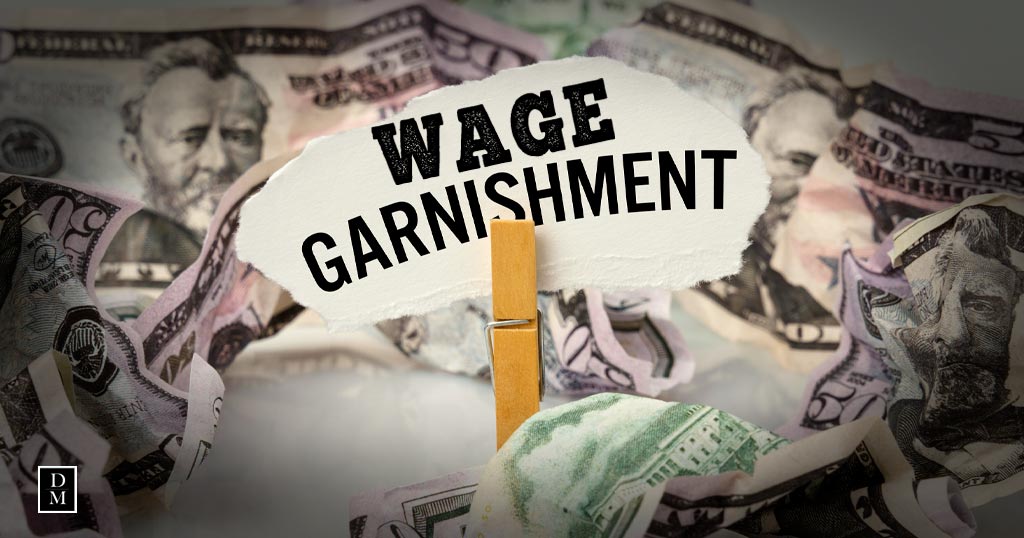
As a top Mesa bankruptcy lawyer, we receive frantic calls from people daily about the potential garnishment of their wages. To help answer some preliminary questions, we’ve put together a short article on wage garnishments.
In Arizona, wage garnishment is a legal procedure that allows a creditor to collect a debt by taking a portion of a debtor’s earnings directly from their paycheck. Here are some key things you should know about garnishment of wages Arizona:
.
1) When Can a Creditor Garnish Wages in Arizona
A creditor can garnish wages in Arizona if they have a valid judgment against the debtor. This means that the creditor has gone through the court system and obtained a court order allowing them to collect the debt. The creditor can then send the court order to the debtor’s employer, who will withhold a portion of the debtor’s wages and send it directly to the creditor. If you live in Mesa, Gilbert, Queen Creek or Phoenix and have received a garnishment letter from a creditor or IRS, contact us right away. We do have strategies to stop the process right away.
.
2) How Much Can Be Garnished in Arizona?
In Arizona, the maximum amount that can be garnished from wages is 25% of the debtor’s disposable earnings. Disposable earnings are the amount of money left over after legally required deductions (such as taxes and Social Security) have been taken out of the paycheck. If the debtor’s disposable earnings are less than 30 times the federal minimum wage per week, they may be exempt from wage garnishment.
.
3) What Types of Debts Can Be Collected Through Wage Garnishment in Arizona?
Wage garnishment in Arizona can be used to collect most types of consumer debts, including credit card debts, medical bills, and personal loans. However, certain types of debts, such as child support and taxes, have their own specific rules for wage garnishment.
.
4) What Rights do Debtors Have in Arizona When Facing Wage Garnishment?
Debtors in Arizona have certain rights when it comes to wage garnishment. For example, they have the right to receive notice of the garnishment and to request a hearing to dispute the amount being garnished. They also have the right to be free from discrimination or retaliation by their employer due to wage garnishment.
.
5) Can Filing Bankruptcy Stop a Garnishment?
Yes, filing for bankruptcy can often stop wage garnishment Arizona. When a person files for bankruptcy, an automatic stay goes into effect that stops most collection actions, including wage garnishment. This means that creditors and debt collectors cannot continue to garnish wages while the bankruptcy case is pending.
However, there are some exceptions to this general rule. For example, certain types of debts, such as child support or alimony, may continue to be collected through wage garnishment even during a bankruptcy case. Additionally, if the wage garnishment is based on a debt that is not dischargeable in bankruptcy, such as some tax debts or student loans, the garnishment may be able to continue.
If you are considering filing for bankruptcy in Arizona to stop wage garnishment or other collection actions, it is important to speak with an experienced Arizona bankruptcy lawyer. An attorney can help you understand your options and guide you through the bankruptcy process.
It’s also important to note that wage garnishment can have serious financial consequences for the debtor. If you’re facing garnishment of wages Arizona, contact DM Bankruptcy Law Group in Mesa for a complimentary case consultation. We offer sympathetic and non-judgmental legal representation. Our goal is to help you get out of debt so you can start living stress free.
DISCLAIMER: None of the content in this post shall be construed as legal advice to you, the reader, and no attorney/client relationship is formed by reading this post.

